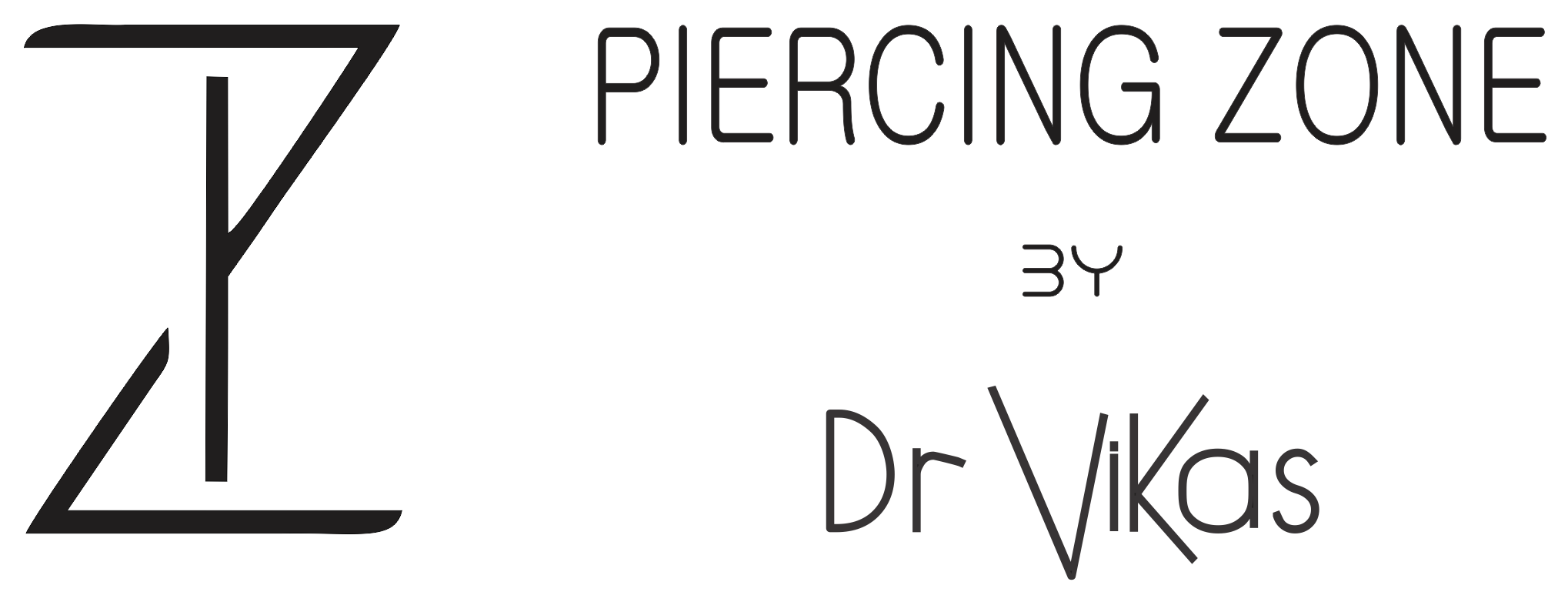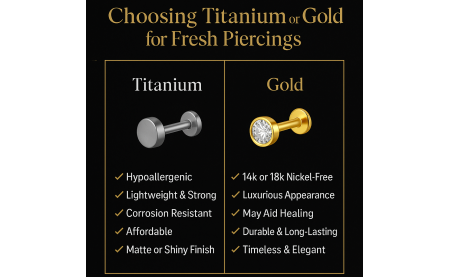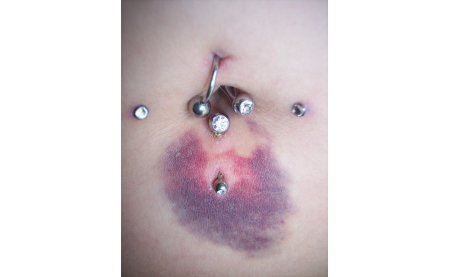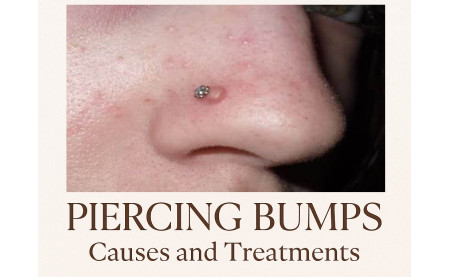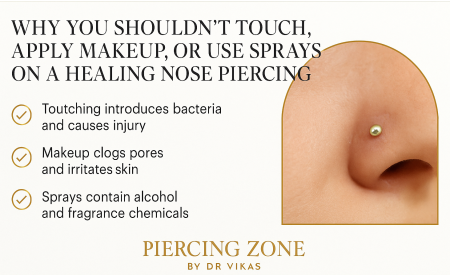How Hormones Cause Piercing Bumps — The Science Behind Stress, Periods & Slow Healing
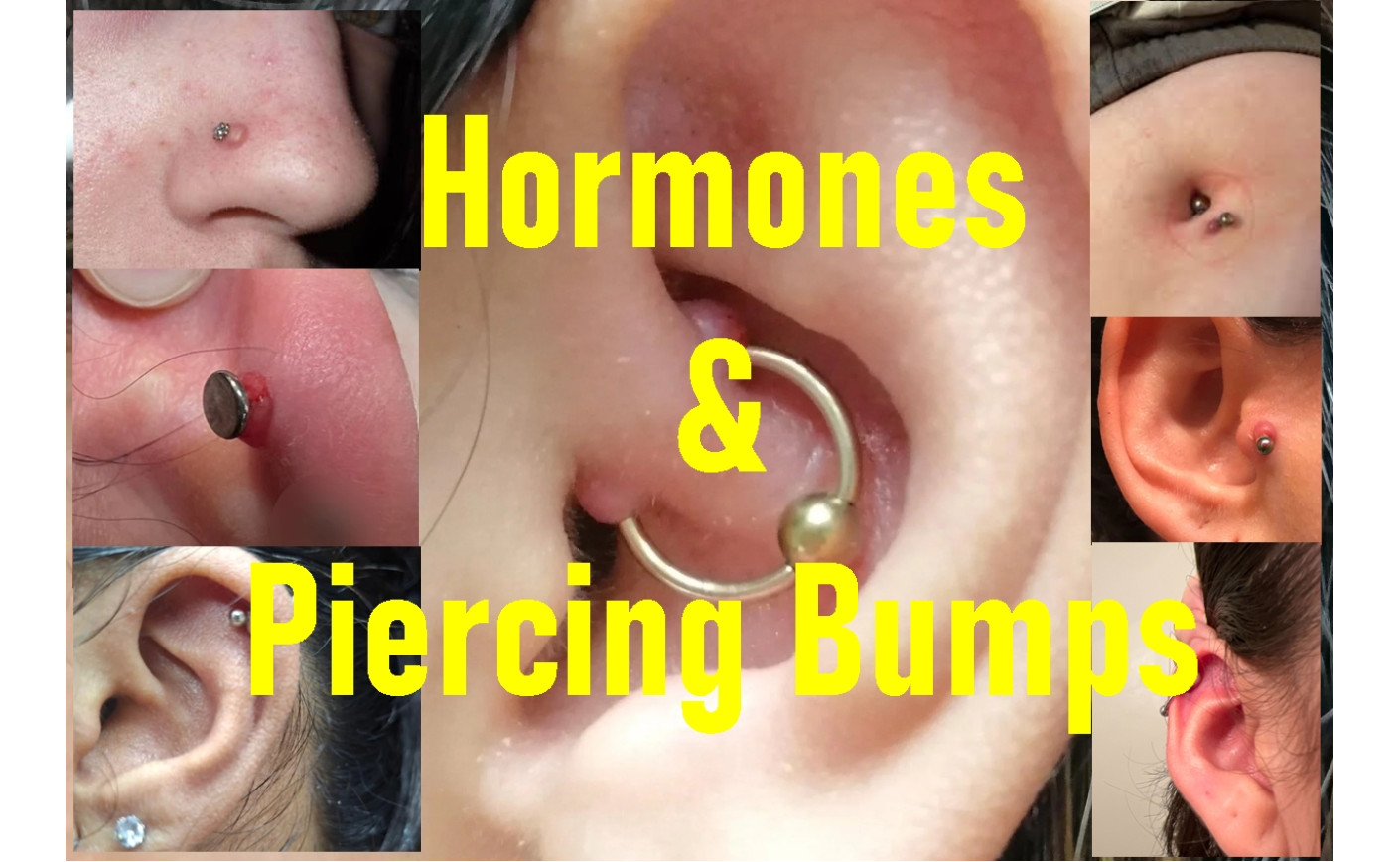
1. Introduction — When Piercing Bumps Appear Despite Perfect Care
Even with flawless hygiene, premium titanium or gold jewellery, and a sterile environment, some clients still experience small bumps around a healing piercing. These raised areas are often mistaken for infection, but in many cases, hormones are the real culprits.
At Piercing Zone by Dr Vikas, we see hundreds of beautifully performed piercings that heal perfectly — yet occasionally, a client develops a bump that seems to appear overnight. This is not always due to irritation or improper aftercare. In reality, your internal chemistry — specifically the balance of hormones such as cortisol, oestrogen, progesterone, and testosterone — can influence the way your skin heals.
Understanding the link between hormones and healing allows us to help you not only calm the bump but also support your body’s natural recovery process.
2. The Hormonal Connection — How Your Body’s Chemistry Affects Piercing Healing
Hormones are powerful chemical messengers that control inflammation, oil secretion, and collagen production. All three processes are essential in how a piercing wound heals.
-
Inflammation: Too much can lead to redness and swelling; too little slows tissue repair.
-
Sebum (oil) production: Balanced oil keeps the skin barrier healthy, but excessive oil can trap bacteria and cause bumps.
-
Collagen regulation: Controlled collagen ensures smooth healing; over-production may cause raised scars or hypertrophic bumps.
When stress, menstrual cycles, or other hormonal shifts occur, these internal systems become temporarily unbalanced. That imbalance shows up externally — often as piercing bumps, slower healing, or increased sensitivity.
3. Cortisol — The Stress Hormone That Delays Healing
Cortisol is released when your body is under stress — physical, emotional, or even sleep-related. It is essential for survival, but chronically high cortisol suppresses the immune system and delays tissue repair.
In practical terms, this means:
- Piercings take longer to close micro-tears and seal properly.
- You may notice more redness, tenderness, or swelling after stressful periods.
- Even minor irritations (like sleeping on one side or using a mask) can trigger a visible bump.
At Piercing Zone by Dr Vikas, we often see clients whose piercings heal perfectly during calm months and flare up during exams, work deadlines, or personal stress.
Professional Tip: Prioritise rest, hydration, and a stable routine. During high-stress phases, support healing by cleansing gently.
4. Oestrogen & Progesterone — How Periods, Pregnancy, and Birth Control Influence Piercings
Female hormones fluctuate naturally each month. These changes affect skin thickness, hydration, and circulation — all key factors for piercing health.
▪️ Before and During Periods
- Oestrogen drops and progesterone rises, leading to water retention and inflammation.
- You might see temporary swelling or tenderness around the piercing site.
- Healing slows slightly; new piercings done at this time may form bumps more easily.
▪️ On Birth Control
- Elevated oestrogen increases blood flow but also stimulates pigment and oil glands, sometimes leading to irritation or slower healing.
- Body temperature and immune activity fluctuate, which can reactivate older piercings or bumps that had settled.
5. Androgens (Testosterone & DHT) — The Male Factor Behind Oily Skin and Piercing Bumps
Men, too, experience hormonal influences. The primary hormones — testosterone and dihydrotestosterone (DHT) — increase oil (sebum) production and thicken the skin.
While this makes male skin more resilient, it can also:
- Trap natural oils around piercing channels.
- Encourage clogged pores and irritation bumps.
- Delay the clearing of micro-inflammation.
For male clients, regular saline rinsing while keeping the piercing hydrated and clean without over-drying.
6. PCOS, Thyroid & Other Hormonal Imbalances — The Hidden Medical Links
Some individuals live with underlying hormonal disorders such as Polycystic Ovary Syndrome (PCOS), thyroid imbalance, or insulin resistance. These conditions subtly alter healing patterns:
- PCOS: Elevated androgens → oily skin → higher risk of clogged piercings.
- Hypothyroidism: Slows metabolism → slower collagen repair → longer healing.
- Hyperthyroidism: Accelerates cell turnover → more irritation and inflammation.
7. Piercing Zone by Dr Vikas Approach — The Science of Luxury Piercing Care
Our philosophy merges medical precision with aesthetic artistry. Each piercing is performed using ASTM F-136 implant-grade titanium or solid 14K/18K gold, ensuring the metal never reacts with your skin’s natural chemistry.
We also integrate knowledge of dermatology and endocrinology into our healing protocols. This means:
- Evaluating skin type before choosing jewellery length and design.
- Advising on the best healing phases for female clients.
8. Professional Tips — How to Minimise Hormonal Impact on Piercings
1. Keep a Healing Journal:
Note changes during stress, travel, or hormonal cycles. If bumps appear repeatedly at the same times, the cause may be internal, not external.
2. Clean Gently, Not Aggressively:
Over-cleaning strips protective oils and triggers cortisol release from micro-stress on the skin. Two saline rinses per day are sufficient.
3. Support Healing from Within:
Eat zinc- and vitamin C-rich foods to support collagen formation. Avoid high sugar, which can spike insulin and inflammation.
4. Use Targeted Aftercare:
- Sterile saline spray (0.9 % sodium chloride) twice daily to keep the area clean.
- Avoid alcohol-based or perfumed products.
5. Avoid Pressure & Friction:
Hormonal bloating or puffiness can make jewellery tighter. Ensure your post length is correct and avoid sleeping on fresh piercings.
6. Prioritise Calm:
Meditation, yoga, and proper rest aren’t just wellness trends — they directly lower cortisol and improve skin regeneration.
Conclusion — Balancing Beauty, Healing & Hormones
A piercing is more than skin deep; it’s an elegant collaboration between artistry and biology. When hormones fluctuate, they may briefly challenge the healing process — but with the right care, understanding, and support, every piercing can settle beautifully.
At Piercing Zone by Dr Vikas, we combine luxury technique, scientific insight, and evidence-based aftercare to ensure your body and jewellery heal in perfect harmony.
